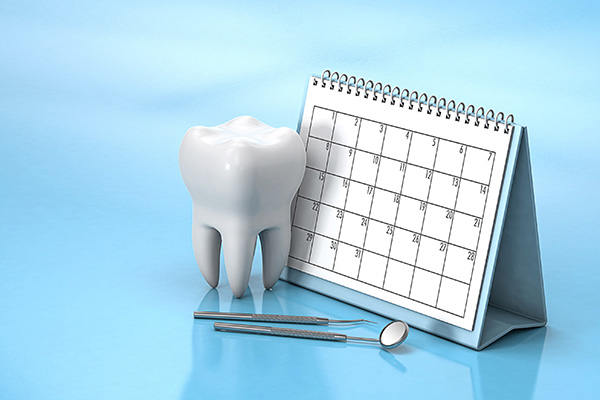 A crucial component of being healthy is routine dental care. When oral health is ignored, harmful bacteria can compromise the rest of the body. Healthy dental practices involve a two-prong approach of visiting the dentist regularly and continuing oral health care at home. Discover more about what is considered routine and effective dental care practices.
A crucial component of being healthy is routine dental care. When oral health is ignored, harmful bacteria can compromise the rest of the body. Healthy dental practices involve a two-prong approach of visiting the dentist regularly and continuing oral health care at home. Discover more about what is considered routine and effective dental care practices.
Regular visits to the dentist
Making biannual trips to the dentist is a foundation of routine dental care. These check-ins allow the provider to find problem areas and address them. Regular checkups may need to be more frequent than twice a year, depending on the patient's oral care, history, and underlying medical conditions that may impact the teeth. For example, people with diabetes typically need to visit the dentist more often to ensure the disease has not caused an acceleration of decay. Visits to the provider usually include some common elements.
X-rays
The provider needs to get a good look at what is happening under the surface of the mouth. X-rays are taken at annual visits so the dentist can look for problem areas that are not otherwise visible. Other than cavities, X-rays may reveal issues with roots, bones, and gums.
Cleaning
Part of a regular dental checkup includes a deep cleaning of the teeth and gums. During this process, the hygenist uses special tools to remove plaque from the surface of the teeth and at the gumline. If plaque remains on the teeth too long, it mineralizes and becomes tartar. A buildup of tartar leads to decay and gum disease. If tartar has formed, the dentist may suggest that the patient return for a deeper cleaning of the teeth to remove it.
Exam of teeth
The dentist conducts a physical exam of the mouth. The provider checks the integrity of the teeth, the condition of the gums, and any evidence of infection. With the help of X-rays, the dentist is able to recommend treatment for underlying problems. Some issues may require more invasive intervention, such as a root canal. Fillings are the most common dental procedure performed. Removing a cavity and filling the hole are necessary to keep the patient pain-free and the bacteria from deepening its intrusion into the tooth.
Further recommendations
At the end of the checkup, the dentist generally makes recommendations as to how a patient can improve oral health practices at home. Regular brushing is crucial to keeping the teeth free of the dirt and debris that build up and cause plaque. Teeth should ideally be brushed after eating, but twice a day is acceptable. Pay close attention to brushing the gumline to ensure bacteria cannot creep up underneath. Flossing is also integral to keeping the mouth clean. It is easy for debris to collect between teeth and cause problems in the future.
Conclusion
Keeping the mouth healthy stops an obvious path for bacteria to use to enter the body. Establishing routine dental care both at home and the dentist's office are two ways to shut down this route for infections. When changing unhealthy habits to improve the quality of life, do not forget about the mouth.
Request an appointment or call Lalangas Family Dentistry at 972-534-6008 for an appointment in our Dallas office.
Related Posts
When patients go for routine dental care, they may or may not have X-rays taken of their mouths. Dentists use these important diagnostic tools to check all layers of the tooth. While a key part of routine care, X-ray imaging may not be taken every visit. Every patient is different, and the recommended frequency for…
While some might believe visiting the dentist is only necessary for emergencies, routine dental care can be vital for oral health and overall wellness. There are a variety of benefits to seeing a dentist two or three times a year, no matter a patient’s stage of life. While regular brushing and flossing can help keep…
Maintaining routine dental care is important for oral and overall health, but many patients have questions about what it consists of beyond daily brushing and flossing. The right answers can help patients of any age understand the importance of providing optimum care for their teeth and the possible issues if they fail to follow through.…


